As a content marketer, you understand the critical role of producing compelling and impactful content to draw and retain customers. However, the tone of voice influences your audience’s response. In B2B content marketing, selecting the appropriate tone of voice is crucial. It helps establish trust, expertise, and authority with your business clients. Carefully choosing your tone is imperative to achieve the desired effect on your target audience.
Tone Matters: The Impact of Tone of Voice in B2B Content Marketing
In B2B content marketing, selecting the right tone of voice is crucial to engaging and connecting with your target audience. The tone of voice is how you communicate your message and sets your content’s overall mood and attitude. In other words, the tone can be friendly, authoritative, conversational, or informative, depending on the audience and the purpose of your content.
When creating B2B content, it’s essential to consider your target customers’ specific needs and preferences. For example, a more informative and professional tone may be more appropriate if your audience consists of technical experts. On the other hand, if your target customers are decision-makers or executives, a more authoritative and convincing tone could be more effective.
When selecting the tone of voice, it’s essential to consider the platform or channel where you’re publishing the content. For instance, social media posts may require a more conversational tone. However, whitepapers or case studies may require a more formal and professional tone.
Some of the most common tones of voice include:
Technical Tone of Voice
A technical tone of voice is a writing style used to convey complex and technical information to a specific audience. This tone of voice is often used when the target audience is composed of experts, professionals, or people with a deep understanding of the subject matter. For example, it’s commonly used in fields like science, engineering, technology, and medicine, where precision and accuracy are essential.
The language used in technical writing is typically precise and unambiguous, often including technical details and specifications. Technical writers use terminology and jargon specific to a particular industry or field to communicate information effectively. This language may be challenging for non-experts to understand, but it’s necessary for conveying information accurately.
Using a technical tone of voice in content writing establishes the writer’s expertise, credibility, and authority on the subject matter. It’s also used to communicate complex or specialized information clearly and concisely. Technical writing often involves breaking down complex concepts into simple and understandable terms for the target audience. Using a technical tone of voice helps build trust with the audience by demonstrating the writer’s knowledge and experience.
Technical writing requires a high level of accuracy and attention to detail. The writer must ensure the content is factually correct and error-free. The use of a technical tone of voice helps to convey this attention to detail, as it implies a thorough understanding of the subject matter and a commitment to accuracy.
Example: “The CPU clock speed of this laptop is 3.6 GHz, with a quad-core processor and hyper-threading technology for improved multitasking performance.”
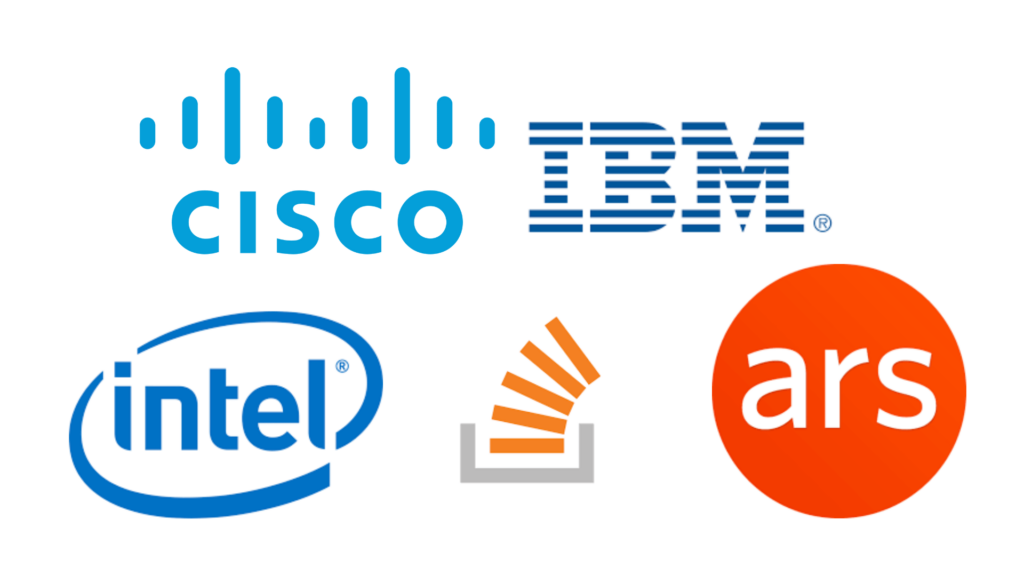
Cisco’s Technical Tone of Voice
Cisco is a multinational technology company specializing in networking hardware, software, and telecommunications equipment. Their website and product documentation are prime examples of a technical tone of voice. It’s characterized by precise language and industry-specific jargon. Technical terms like “router,” “switch,” and “firewall” are used, and they provide detailed technical specifications and configurations for their products and services.
Using a technical tone of voice positions Cisco as an authority in the networking industry. It caters to its audience of IT professionals, network engineers, and other technical experts who require in-depth and detailed information about its products.
Other Examples of Brands with a Technical Tone
- IBM: International Business Machines Corporation is well known for its technical tone in explaining complex computing solutions.
- Intel: Intel Corporation, a leader in microprocessors and computer technology, often uses a technical tone to explain its products and innovations.
- Stack Overflow: A popular online community where programmers share knowledge and insights, Stack Overflow’s tone is technical, as its users typically discuss coding challenges, programming languages, and software development.
- Ars Technica: An online publication that covers technology news, analysis, and expert opinions, Ars Technica’s content is characterized by a technical tone, focusing on an in-depth exploration of scientific and technological advancements.
Professional Tone of Voice
A professional tone of voice is essential to effective B2B content marketing. This type of tone is appropriate because it conveys a sense of expertise, authority, and trustworthiness to business customers. By adopting a professional tone, companies can establish themselves as reliable and knowledgeable resources in their respective industries.
Clear and concise language is critical to a professional tone of voice. Using simple language and avoiding complex terminology can help ensure the content is easily understandable and accessible to a wide range of business customers. However, industry jargon is also a crucial part of a professional tone of voice, as it helps to demonstrate a deep understanding of the industry and its key concepts.
The focus of B2B content marketing with a professional tone is on providing valuable insights and solutions for business customers. The content should be informative and insightful and address the target audience’s needs and pain points. By doing so, companies can establish themselves as trusted advisors to their business customers, providing valuable guidance and support throughout the customer journey.
Example: “Our team of experts has years of experience in the industry, and we can help you achieve your business goals with our proven solutions.”
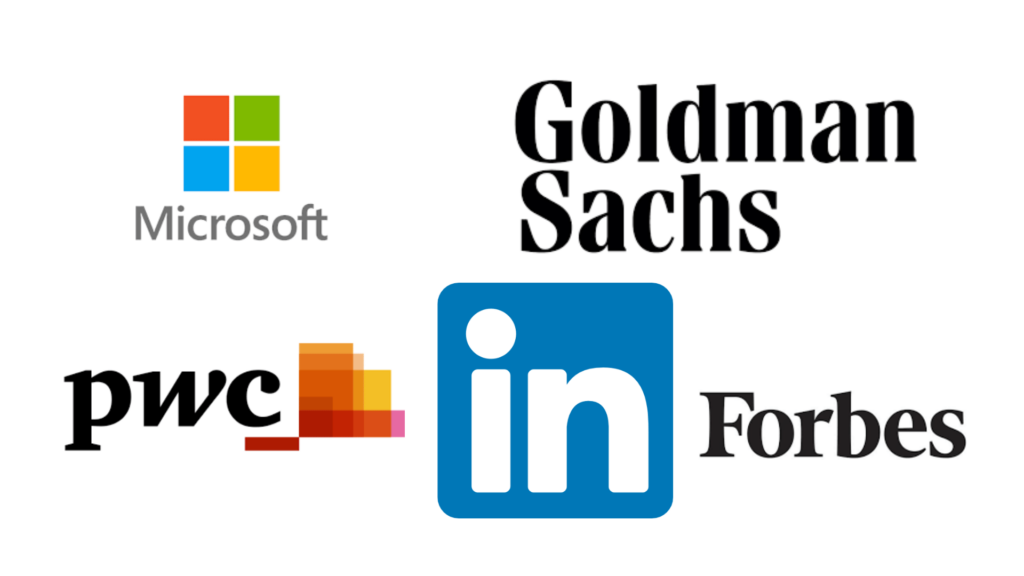
Microsoft’s Professional Tone
Microsoft’s website is an example of a brand that uses a professional tone of voice. Throughout its website, Microsoft provides extensive information about its products, services, and technologies in an authoritative, informative, and professional way. The language is specific to the industry and includes technical terms and jargon to describe their offerings.
The target audience for Microsoft’s website is businesses, developers, and IT professionals, and the language is tailored toward their expertise level. The tone of voice exudes expertise and professionalism, which helps establish trust with its target customers.
Other Examples of Brands with a Professional Tone
- Goldman Sachs: This global investment banking, securities, and investment management firm is known for its professional tone in communications and client interactions.
- PwC: PricewaterhouseCoopers, a multinational professional services network, adopts a professional tone when addressing clients and discussing services in audit, assurance, tax, and consulting.
- LinkedIn: As a professional networking platform, LinkedIn’s tone is consistently professional, as it serves as a medium for users to connect, share career insights, and discuss industry trends.
- Forbes: A well-established business and finance publication, Forbes’ online content maintains a professional tone, with articles covering entrepreneurship, investing, and management strategies.
Informative Tone of Voice
An informative tone of voice is an effective approach for brands that want to provide their B2B customers with valuable and relevant information. This tone of voice is characterized by a clear and concise writing style that prioritizes the communication of important details and facts. It seeks to inform customers about products, services, and industry trends. Furthermore, it also educates them on how to solve problems and overcome challenges.
An informative tone may use technical language. But it also prioritizes clarity and simplicity to ensure the information is accessible and easily understood. By adopting an informative tone of voice, brands can demonstrate their knowledge and expertise, establish themselves as industry leaders, and build trust with their customers. This tone of voice can be highly effective in building a loyal customer base by providing valuable insights and information that help them make informed decisions.
Example: “Our new software solution is designed to improve your workflow efficiency by up to 50%, helping you save time and money in the long run.”
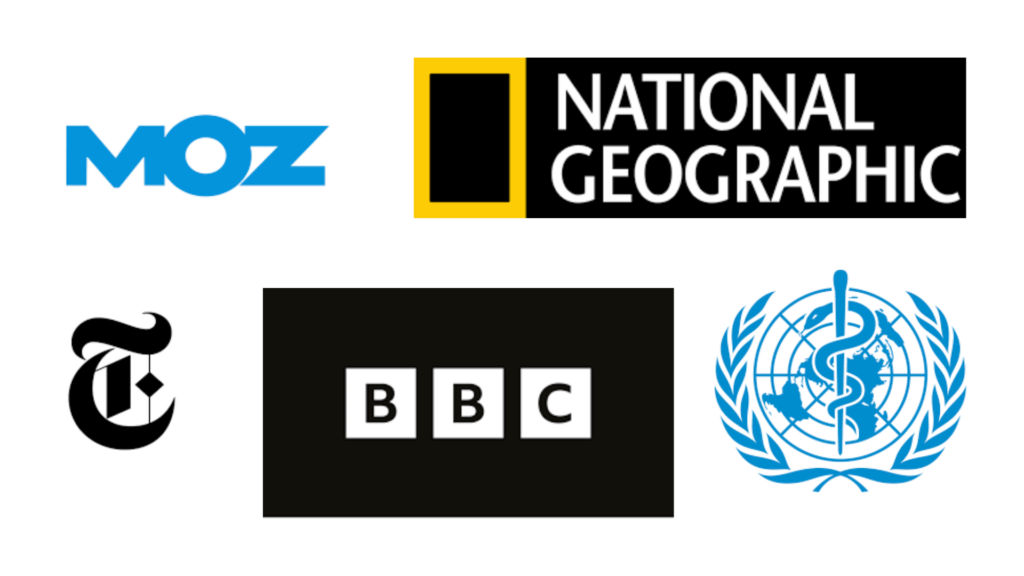
Moz’s Informative Tone
Moz is an excellent example of a brand that uses an informative tone of voice on its website. As a marketing analytics software company, Moz provides insights and tools that help businesses enhance their online presence. The tone of voice they use on their website is designed to educate and inform their customers. Moz provides detailed explanations of its software features, how they work, and tips and strategies for improving SEO and online marketing. They use language that is easy to understand, even for those new to the field, and their tone is friendly and approachable.
Moz’s website demonstrates its commitment to providing value to its customers through education and information. This approach helps establish trust and credibility with their audience. Moz’s informative tone of voice is an essential component of its brand identity and aligns with its goal of being a trusted authority in the field of marketing analytics. Through its informative tone of voice, Moz effectively communicates its expertise while building strong customer relationships.
Other Examples of Brands With an Informative Tone
- National Geographic: Known for its magazines, television programs, and other media, National Geographic uses an informative tone to educate readers about the natural world and human cultures.
- The New York Times: This esteemed newspaper consistently employs an informative tone in its reporting, covering national and international news, business, and culture.
- BBC: The British Broadcasting Corporation is a public service broadcaster that uses an informative tone in its news, documentaries, and educational programming.
- The World Health Organization (WHO): As a global authority on public health, WHO’s online content is focused on providing accurate, up-to-date, and informative resources on various health topics.
Conversational Voice
When a brand uses a conversational tone of voice, they aim to connect with its audience personally, creating a sense of trust and openness. This tone is more relaxed and informal, allowing businesses to communicate naturally and authentically with their customers. Using everyday language and storytelling, brands can build relationships with their customers, sharing their values and creating a connection beyond the traditional business transaction.
A conversational tone of voice is often used by B2B brands that want to position themselves as approachable and relatable. This tone can be particularly effective in industries where traditional marketing approaches, like technology or finance, can feel cold or sterile. Brands that use a conversational tone of voice may use humor, anecdotes, or personal stories to engage their audience, making them more memorable and likable.
While a conversational tone of voice may be less formal, it’s still important to maintain a level of professionalism and avoid being too casual or inappropriate. When executed well, a conversational tone of voice can help businesses stand out from their competitors and create a lasting connection with their customers.
Example: “We understand that running a business can be challenging, so we’re here to provide the tools and support you need to succeed. Let’s work together to achieve your goals.”
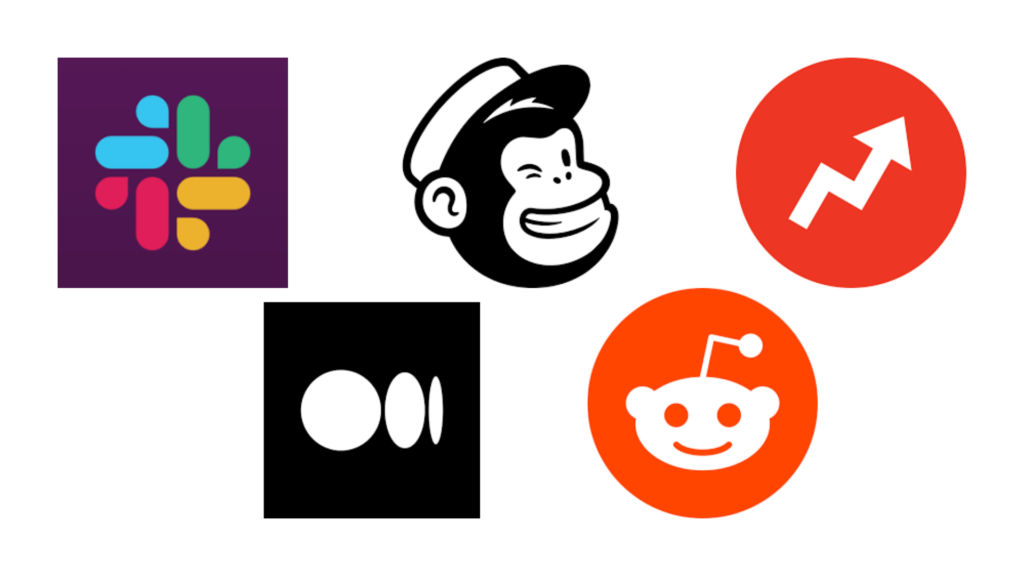
Slack’s Conversational Tone
Slack, a communication and collaboration platform, uses a conversational tone on its website to establish a friendly and approachable relationship with its B2B customers. Their tone is characterized by the use of casual language, humor, and storytelling to explain their product features in a relatable manner.
Slack’s website copy might say:
- “Teamwork makes the dream work, but Slack makes the teamwork”
- “Don’t just talk about work; get it done in Slack.”
Their conversational tone helps to create a sense of community and fosters a welcoming atmosphere for users. Using a conversational tone, Slack demonstrates that they understand the importance of building customer relationships and creating camaraderie within teams.
Other Examples of Brands with a Conversational Tone
- Mailchimp: This is an email marketing service provider and marketing automation platform. It has a reputation for its friendly and conversational tone in its communications and user interface.
- BuzzFeed: Featuring articles, quizzes, and listicles, BuzzFeed’s content is often characterized by a casual, conversational tone that appeals to a broad audience.
- Medium: This popular online publishing platform hosts a diverse range of user-generated content. Much of this content features a conversational style, making it accessible and engaging to readers.
- Reddit: As a social news aggregation and discussion website, Reddit’s content is often conversational, with users engaging in casual, informal discussions on various topics.
Authoritative Tone
In a B2B context, an authoritative tone of voice can help a brand establish a sense of leadership and influence in its industry. A brand can effectively demonstrate its expertise and establish itself as a trusted authority by being assertive, confident, and knowledgeable. You can characterize an authoritative tone of voice by:
- strong, direct language
- persuasive arguments
- a focus on demonstrating the superiority of a product or service
This can include using statistics, case studies, and other forms of evidence to back up claims and establish credibility.
To effectively use an authoritative tone of voice, it’s important to understand the target audience. That includes understanding their needs, challenges, and pain points. This can help a brand tailor its messaging and focus on the specific benefits that its product or service can provide. Furthermore, it’s also important to balance being confident and assertive. That way, you’re not coming across as arrogant or dismissive of the audience’s perspective.
An authoritative tone of voice can be a powerful tool for B2B brands looking to establish themselves as leaders in their industry and build trust with their target audience. A brand can persuade potential customers to choose its product or service over competitors by demonstrating expertise and superiority.
Example: “Our innovative solution is the best in the market, and it has been proven to deliver superior results for businesses like yours. Don’t settle for less – choose the best.”
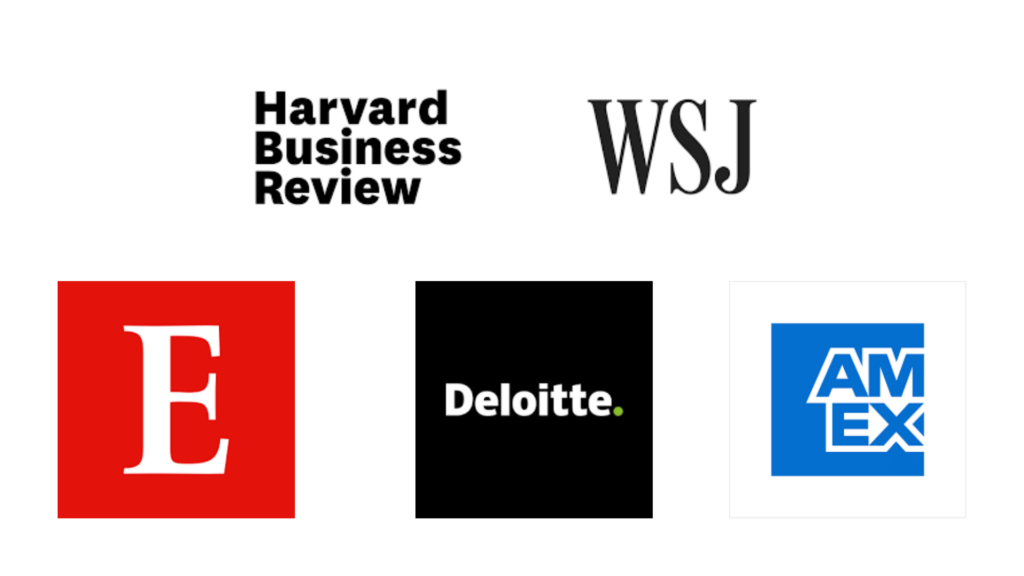
Harvard Business Review’s Authoritative Tone
Harvard Business Review, a renowned publication that offers business and management insights, uses an authoritative tone of voice on its website. The website’s tone exudes confidence, expertise, and authority, aiming to establish the publication as a respected source of information. To achieve this, they employ language that reflects their standing, like “research shows” and “industry experts agree.”
In-depth analysis and research support their arguments; the tone is serious and professional. Using an authoritative tone, Harvard Business Review positions itself as a trustworthy and credible resource for professionals and academics seeking valuable business-related information.
Examples of Other Brands with an Authoritative Tone
- The Wall Street Journal: This respected business-focused newspaper adopts an authoritative tone in reporting on financial news, markets, and business developments.
- The Economist: This influential weekly magazine features authoritative analysis and commentary on international news, politics, business, finance, and technology.
- Deloitte: This company is a global leader in professional services. It provides innovative solutions and expert advice to help clients navigate complex challenges and achieve their strategic goals.
- American Express: American Express uses an authoritative tone to emphasize the exclusivity and benefits of its premium credit cards. By positioning itself as a provider of high-end financial services, the company seeks to attract affluent customers who are willing to pay a premium for its products.
Empathetic Tone
In B2B content marketing, an empathetic tone of voice can effectively build a strong relationship with customers. Generally, it shows that you understand and care about their needs. Brands that use this tone of voice prioritize listening to their customers and providing personalized solutions.
For example, Salesforce, a customer relationship management (CRM) software company, uses an empathetic tone in its customer support communications. They listen carefully to customer feedback and concerns and provide tailored solutions to help address their needs. Salesforce’s website and product documentation use supportive and helpful language, like “We’re here to help” and “We understand your challenges.” This empathetic tone helps establish a sense of trust and partnership with customers. That ultimately leads to increased loyalty and long-term business relationships.
Example: “Our approach is tailored to your specific needs because we understand your business is unique. Allow us to assist you in accomplishing your objectives with our customized solutions.”
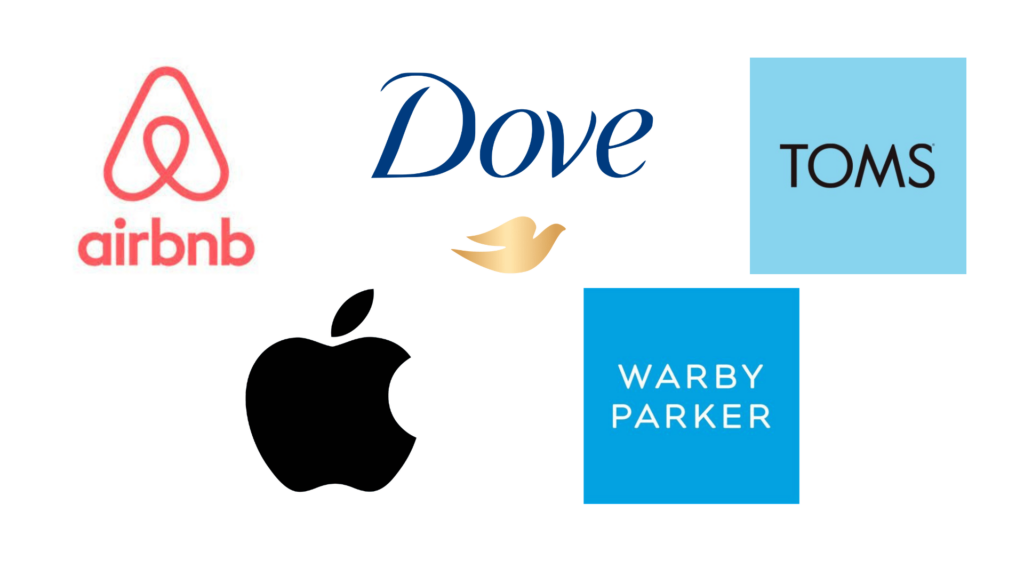
Airbnb’s Empathetic Tone
Airbnb’s website showcases an exemplary use of an empathetic tone, creating a warm and personalized atmosphere for its users. As a platform connecting people with distinctive lodging options offered by local hosts worldwide, Airbnb’s language reflects a deep understanding of its customer’s needs and concerns.
The website features phrases like:
- “We know that planning a trip can be stressful.”
- “We’re happy to support you every step of the way.”
That phrasing helps establish a welcoming and supportive environment. Above all, Airbnb further reinforces its sense of community and connection by incorporating authentic anecdotes from hosts and guests. The brand’s empathetic tone strengthens its dedication to delivering a human-centered travel experience.
Examples of Other Brands Using an Empathetic Tone
- Dove: The “Real Beauty” campaign uses an empathetic tone to empower women to embrace their natural beauty. The brand’s messaging aims to help women feel confident and comfortable in their own skin.
- TOMS: Their messaging highlights their products’ positive impact on people’s lives. And they often share stories of the people who benefit from their social initiatives.
- Apple: Their empathetic tone is evident in how they describe their products and services. By using language that emphasizes its products’ benefits and experiences rather than just the features, Apple seeks to connect with its customers on an emotional level. This approach has proven to be effective in creating brand loyalty and driving sales.
- Warby Parker: The company’s messaging is empathetic and focused on creating a personalized and human-centric shopping experience. They use language that shows they understand their customers’ challenges when buying glasses. Then, they offer solutions that address those challenges.
Finding Your Voice: Choosing the Right Tone for Your B2B Content Marketing
All in all, choosing the tone of voice for your B2B content marketing hinges on various factors. Examples include your brand personality, target audience, and marketing objectives. At nDash, we recognize the significance of tone of voice in B2B content marketing. We provide a platform connecting businesses with specialized freelance writers who can produce compelling and impactful content.
We understand that B2B content marketing can be challenging! Reach out to one of our team members to learn how we can help. It could be just what you need to elevate your efforts and achieve your goals.

